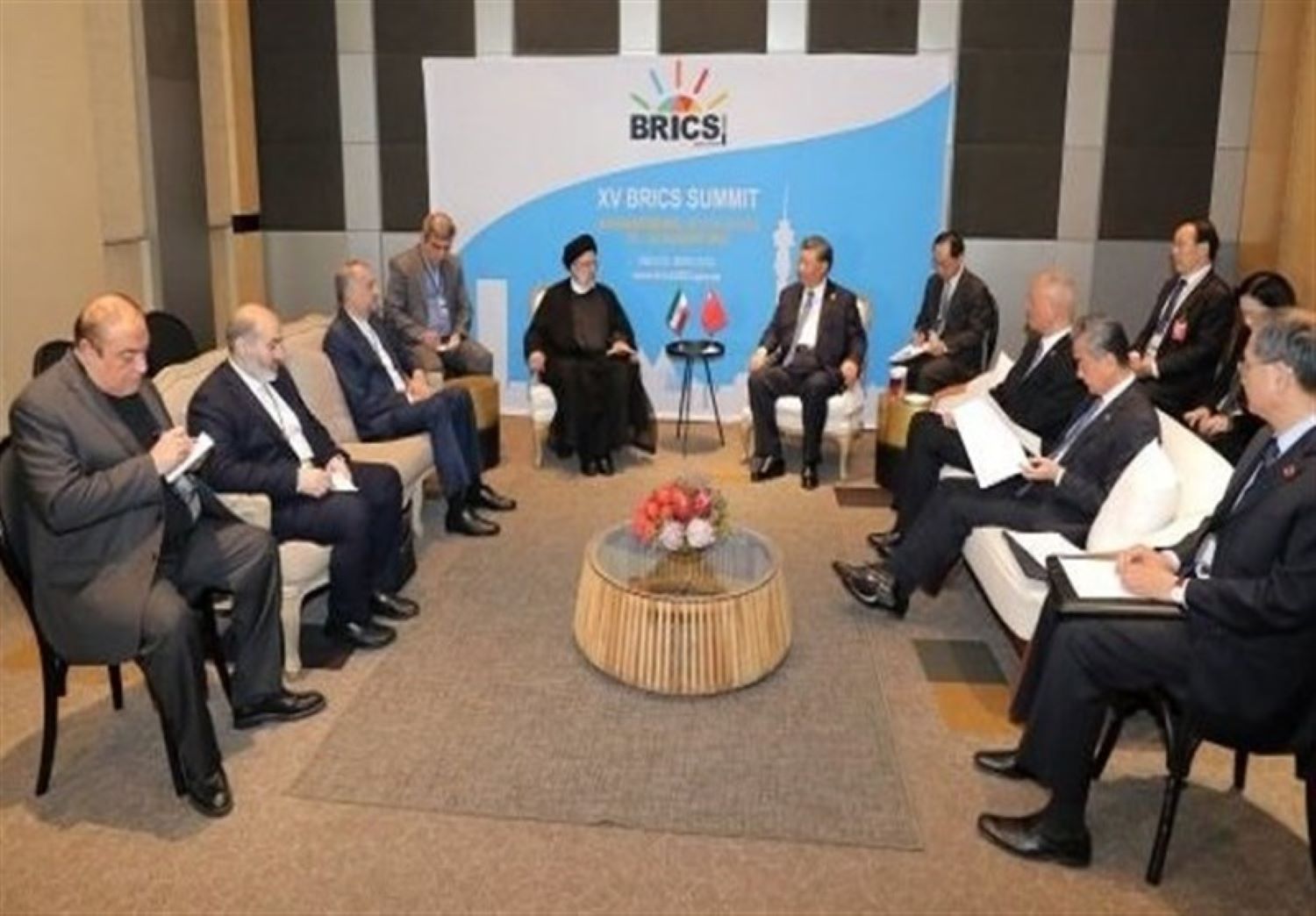TEHRAN/ JOHANNESBURG, IRAN/ SOUTH AFRICA – The Iranian and Chinese presidents stressed the need to bolster bilateral cooperation and the trend of multilateralism especially within the framework of BRICS.
Iranian President Ebrahim Raisi held talks with his Chinese counterpart Xi Jinping on the sidelines of the BRICS+ Summit on Thursday to discuss bilateral ties and international developments, Tasnim news agency reported.
Iran’s membership in the BRICS group of emerging economies will strengthen the group. It will weaken US unilateralism, Raisi said at the meeting.
Turning to the existing agreements inked between Iran and China, Raisi emphasized the implementation of agreements within the framework of the 25-Year Strategic Cooperation between the two countries.
The Chinese president congratulated Iran’s membership in BRICS and added that Beijing is ready to bolster bilateral cooperation and develop cooperation with Tehran in various fields.
The heads of state of the group held their 15th annual summit in Johannesburg earlier on Wednesday, agreeing on mechanisms for considering new members and calling for the use of local currencies to facilitate trade.
The decision on BRICS enlargement, adopted at the summit, will give the association more strength, Xi said at a news conference on the results of the 15th BRICS summit on Thursday, TASS news agency reported.
“The enlargement will be a new starting point for the development of cooperation within BRICS and give the group more strength,” Xi said. “I believe that as long as we work together, BRICS cooperation will have great prospects and the countries in the group – a promising future.”
The leaders of the BRICS countries – Brazil, Russia, India, China and South Africa – adopted the Johannesburg Declaration.
It was presented on Thursday after a meeting of the leaders in South Africa. Six new countries joined the group. Starting from 2024, six new countries will be affiliated with BRICS – Argentina, Egypt, Iran, the UAE, Saudi Arabia and Ethiopia, TASS reported.
In addition, by the next meeting in 2024, the financial institutions of the member countries will draft proposals for using national currencies and common payment instruments.







